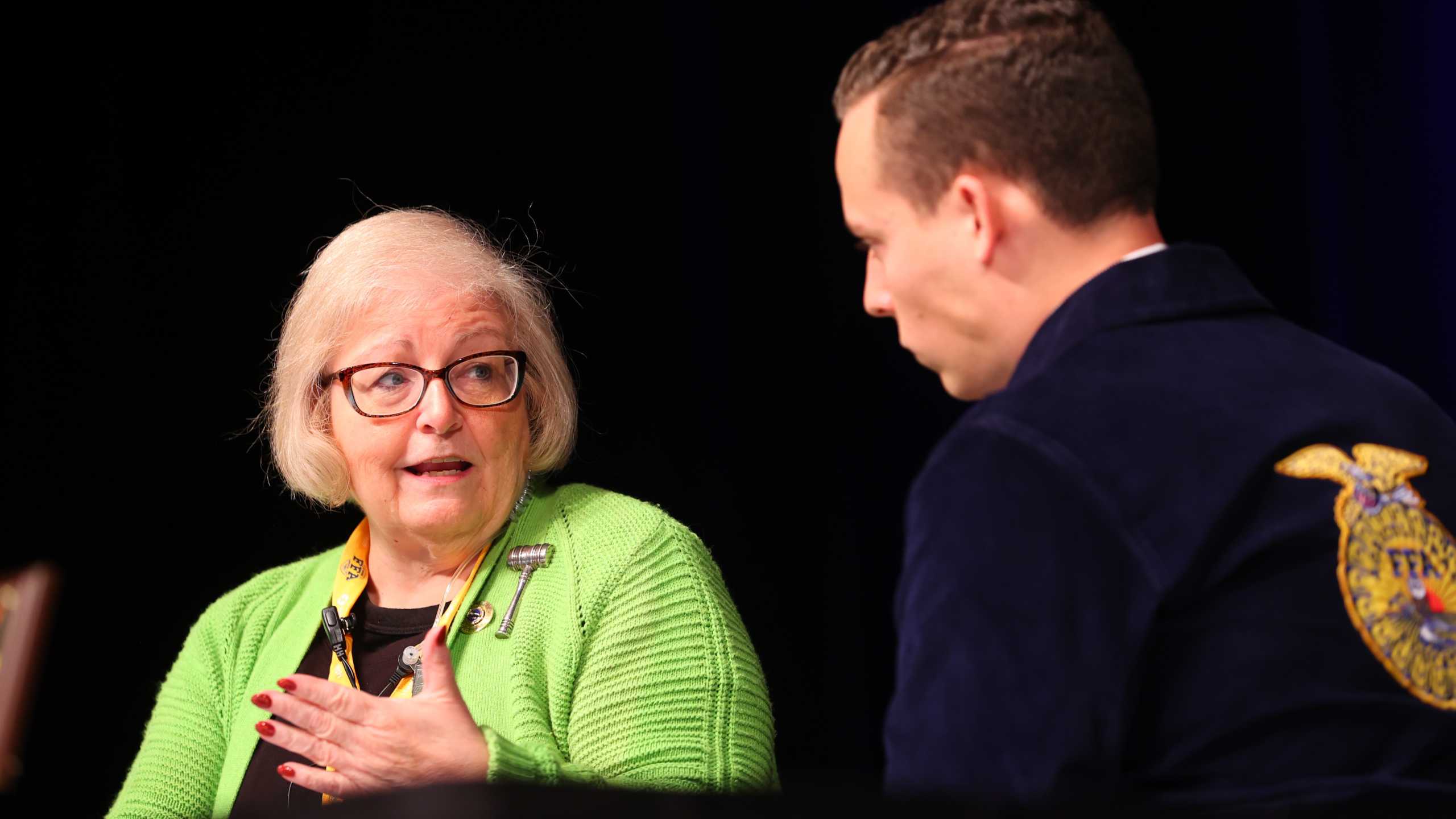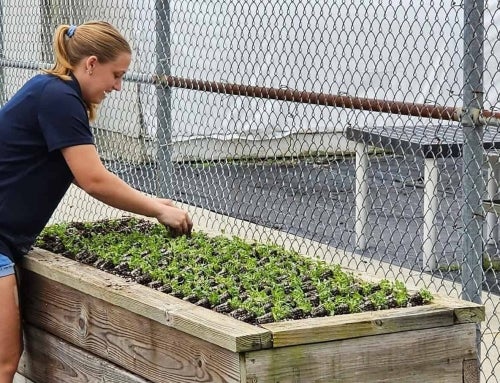No matter what you do in life, you’ll likely need to work with groups of other people to get things done — whether it’s at your job, in your community or beyond.
Someday, you might join a professional society, your local fair board or a statewide agriculture committee. Chances are, you won’t agree with everyone in your organization or team on every topic or situation.
Disagreement is not necessarily a bad thing in a group setting. However, you’ll need to navigate differences in opinion fairly, constructively and in ways that keep your group moving toward its common goals. Parliamentary procedure is the tool you need.
Kay Crews is a professional parliamentarian who works with National FFA. She helps national officers and committees use parliamentary procedure to serve the future of agriculture. She says these five skills you’ll build while studying parliamentary procedure will benefit your whole life.
1. Persuasive speaking
Learning to state your point of view in a structured, concise manner will serve you well, even if you never attend another meeting in your life. While that’s unlikely, you’ll always need to communicate well with anyone you interact with in life, from family to coworkers.
2. Confidence
Stating your viewpoint is not always easy, but you’ll gain confidence doing so while learning parliamentary procedure, especially if you join a contest team. That’s because you’ll have practiced this communication skill hundreds, if not thousands, of times. You’ll also gain confidence in tangible skills, such as counting votes and taking notes (minutes), which will set you apart for future leadership positions.
3. Respect
Parliamentary procedure teaches you “how to disagree without being disagreeable,” Crews says. It allows for differing perspectives to be heard in a respectful manner. All voices have the right to be heard, and debate should remain impersonal — no pointing fingers at individuals or name-calling. This helps create fair, balanced dialogue.
4. Good listening
You’ll need to listen to opposing viewpoints so you can evaluate your own position and how you might convince others to agree with you. You might find you understand where another person is coming from, even if you disagree. It’s important to learn how to disagree with someone without thinking of them as “evil,” Crews says.
5. Effective leadership
Parliamentary procedure aims to make sure everyone has a chance to speak up. However, there comes a time for decision-making. When two-thirds of the group is ready to end the discussion, it’s time for a vote. Remember, the purpose of a meeting is to get something done. By knowing parliamentary procedure, you’ll be able to effectively run meetings and make progress with any group you join.












